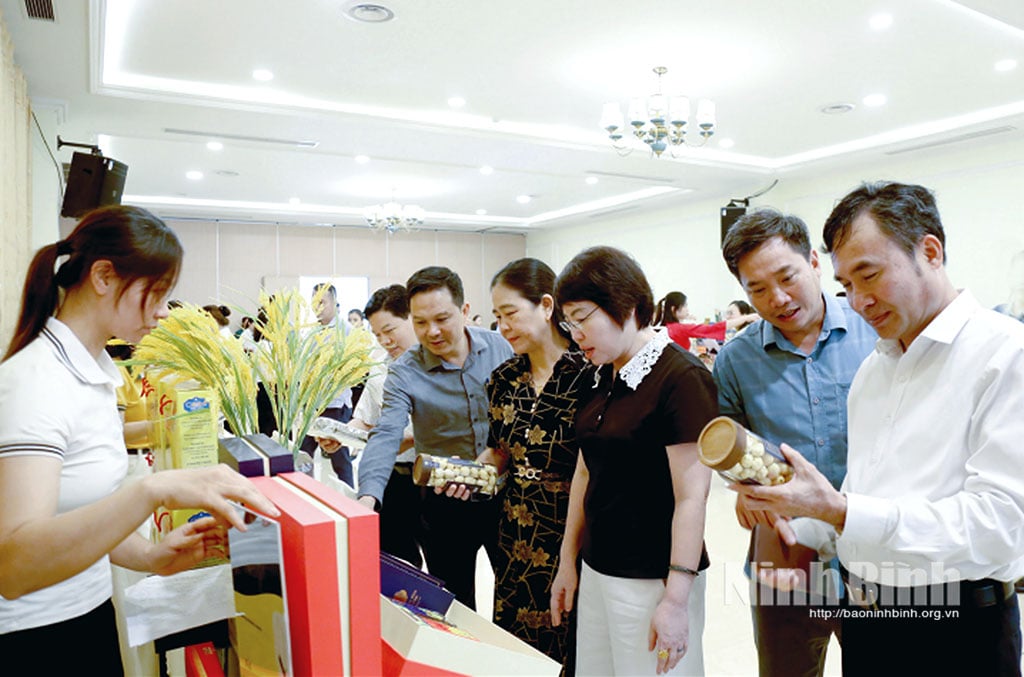
Potential waiting to be awakened
Ninh Binh is a land of outstanding people with a long history and majestic natural landscape, rising to become a bright spot on the tourism map of Vietnam and the world . In 2024, the impressive number of nearly 8.7 million visitors has proven the irresistible appeal of the ancient capital.
However, the province’s potential does not stop at famous scenic spots. This place also contains an abundant untapped resource of typical, rich and extremely attractive agricultural products.
In fact, although the area of natural land and agricultural land of our province is not large, with diverse natural conditions and terrain, including mountains, plains and coastal areas, it has created a rare advantage in terms of diverse agricultural, forestry and fishery ecology for the province.
According to information from the Department of Agriculture and Environment, the province's rice cultivation area is about 70 thousand hectares, of which 80% is high-quality rice with many local specialty rice varieties such as Nep Cau, Tam, Du. Regarding vegetables, we have more than 20 thousand hectares; fruit trees 6.9 thousand hectares, notably pineapple, which is in the book Top 50 most famous specialty fruits in Vietnam, has been protected by the Department of Intellectual Property for geographical indications, with an area of 3.4 thousand hectares.
Regarding aquaculture, the province has both freshwater and brackish water aquaculture, with an annual output of over 70 thousand tons; with many famous specialty aquaculture species such as King's snakehead fish, Tong Truong perch, and brackish water aquaculture species with clams that have been granted ASC certification - Europe's highest certification for sustainable farming, ensuring food safety. Regarding livestock, the annual output of fresh meat is estimated at 67.6 thousand tons...
What is special is that recently, the province has paid special attention to green development and sustainable development in agriculture, aiming to create quality, safe products, protecting human health and the living environment. Production and processing activities have also been invested in and developed with many diverse products, of which vegetable and fruit processing is considered a strength. Currently, the whole province has nearly 200 establishments, enterprises and cooperatives participating in processing agricultural, forestry and aquatic products.
By the end of 2024, the whole province will have 209 OCOP-rated products, including 142 3-star products and 67 4-star products. With the abundant agricultural products with strong local identity mentioned above, we can completely combine with the potential tourism market, creating more sustainable development opportunities for the agricultural sector.
Restaurants and hotels will be a stable and valuable consumption channel for local agricultural products. Instead of having to compete in the free market with many price fluctuations, farmers and cooperatives can sign direct supply contracts, ensuring stable output and sustainable income.
Moreover, the use of fresh agricultural products and specialties of Ninh Binh in dishes not only improves the quality of meals, satisfies tourists but also contributes to promoting local cuisine in a subtle and effective way. Each dish with the typical flavor of the ancient capital will be an attractive cultural story, arousing curiosity and interest for tourists.
“Double benefits” for both tourism and agriculture
“With 300 rooms and a restaurant system that serves about 3,500 guests at a time, our demand for food is very high. We always prioritize the use of fresh ingredients with clear local origins. However, currently the hotel mainly imports goods through intermediary distributors and has almost no direct connection with farmers or cooperatives.
In fact, if we cooperate directly with agricultural suppliers in Ninh Binh, it will help shorten the transportation time, ensure the food is fresh and more local. Surely tourists will be delighted to enjoy dishes made from the products they see on the way to visit. This is not only good for the restaurant but also contributes to promoting Ninh Binh agricultural products in the most natural way" - Mr. Doan Minh Thanh, CEO of Hoang Son Hotel (Hoa Lu city) shared.
According to Mr. Thanh, the hotel currently has a large space for OCOP entities in the province to promote and sell their products. However, the product variety is not much and the products are simply displayed there without anyone introducing, conveying, and telling the product story to tourists, so it has not really attracted customers. On the other hand, tourists often tend to look for unique products with strong local imprints as gifts for relatives, friends or simply to keep memories of the trip. OCOP products, regional specialties can completely become meaningful gifts, both material and cultural.
However, according to Mr. Hoang Binh Minh, Head of the Travel Association, Provincial Tourism Association, said: Tourism and agriculture have a close relationship. We see that tourists' demand for local specialties is increasing.
Creating conditions for tourists to easily access and purchase quality agricultural products, especially OCOP products, not only increases farmers' revenue but also enriches the tourism experience. We are encouraging travel companies to include the introduction and purchase of specialties in the tour program, creating a closed value chain, but unfortunately our province does not have a large-scale and professional OCOP product display center.
Hopefully, there will be a large and comprehensive enough space to display a variety of typical OCOP products of the province, from agricultural products, processed foods, handicrafts to typical tourism products; have a professional sales team, knowledgeable about the production process, nutritional value, cultural and historical stories associated with each product; have a spacious parking lot...
As for farmers and producers, Mr. Do Ba Duy, Director of Ninh Binh Snail Cooperative, shared: Since our snails and snail products were certified as OCOP and had the opportunity to access the tourism market, sales have increased significantly. We have linked up with a number of large hotels, restaurants and specialty stores in tourist areas to introduce our products. Tourists are very interested in the grilled snail dish, or the water bug fish sauce product and buy them as gifts. Obviously, promoting the consumption of agricultural products through the tourism market brings "double" benefits.
For the agricultural sector, this is an opportunity to expand consumption channels, reduce dependence on traditional channels, and directly reach a large number of potential customers. Specialty and OCOP products can be sold at higher prices when associated with tourism experiences.
Tourists will become effective "ambassadors" to promote Ninh Binh agricultural products. In contrast, for the tourism industry, exploiting local agricultural products will increase the attractiveness of the destination. Unique culinary experiences and opportunities to shop for specialties enrich the journey to explore Ninh Binh. Agricultural tours, experiences of farming, or specialty cooking classes can attract tourists interested in local culture...
In the coming time, to fully exploit this potential, Ninh Binh needs to have specific strategies and actions. In particular, it is necessary to closely connect farmers, cooperatives with restaurants, hotels, and specialty stores. Support farmers in applying advanced standards, developing deeply processed products, beautifully packaged, suitable for gifts. Build attractive product stories, closely linked to the culture and people of Ninh Binh.
With the available advantages and the cooperation of all levels and sectors, the "winging" of Ninh Binh agricultural products to fly high and far thanks to the "leverage" of tourism is completely within reach. This is not only an economic problem but also an opportunity to preserve and promote the cultural values and unique identities of the ancient capital, bringing memorable experiences to visitors and contributing to the sustainable development of the province.
Source: https://baoninhbinh.org.vn/canh-cua-rong-mo-cho-nong-san-khi-bat-tay-voi-nganh-du-lich-432767.htm



![[Photo] Prime Minister Pham Minh Chinh chairs conference to promote public investment growth momentum](https://vphoto.vietnam.vn/thumb/1200x675/vietnam/resource/IMAGE/2025/5/20/7d1fac1aef9d4002a09ee8fa7e0fc5c5)




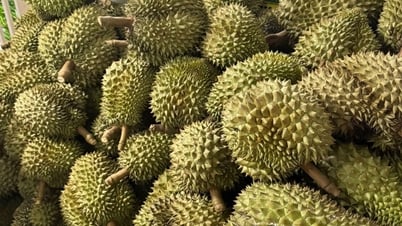





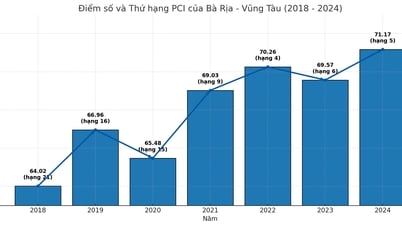

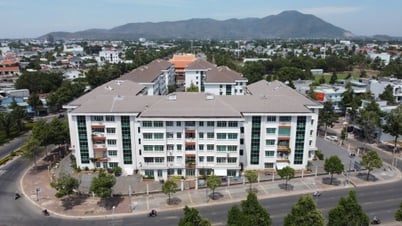







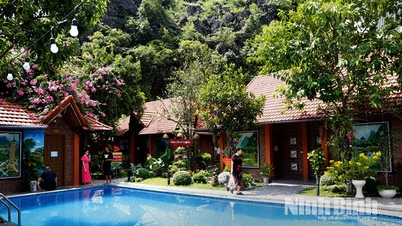
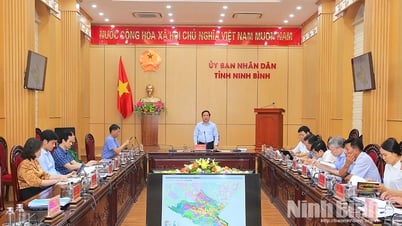
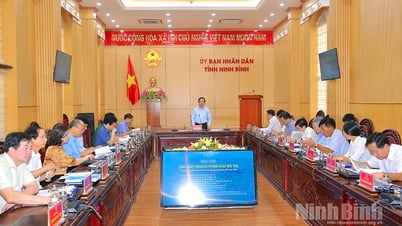
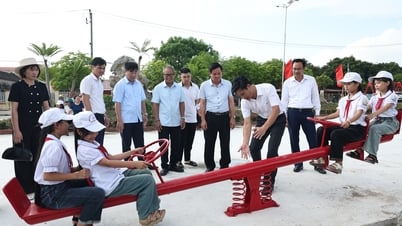





























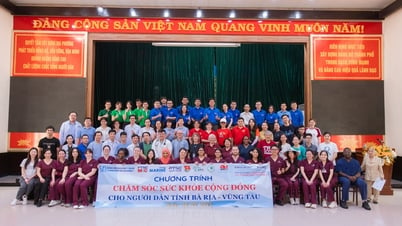

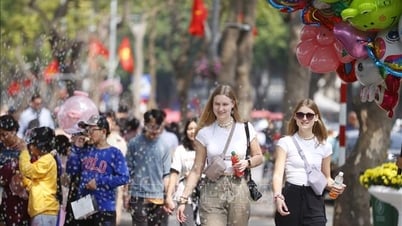







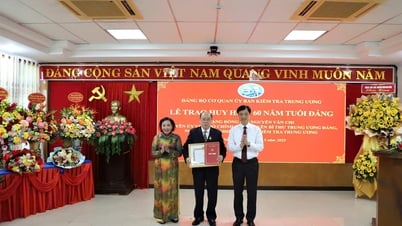

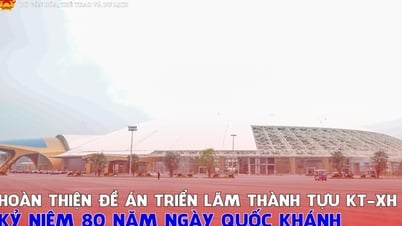

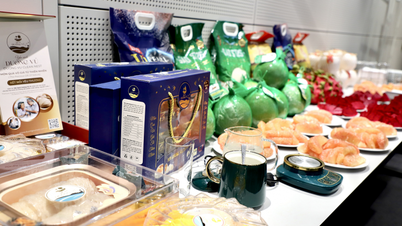












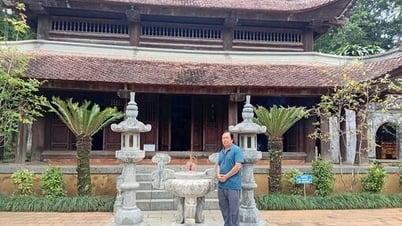











Comment (0)